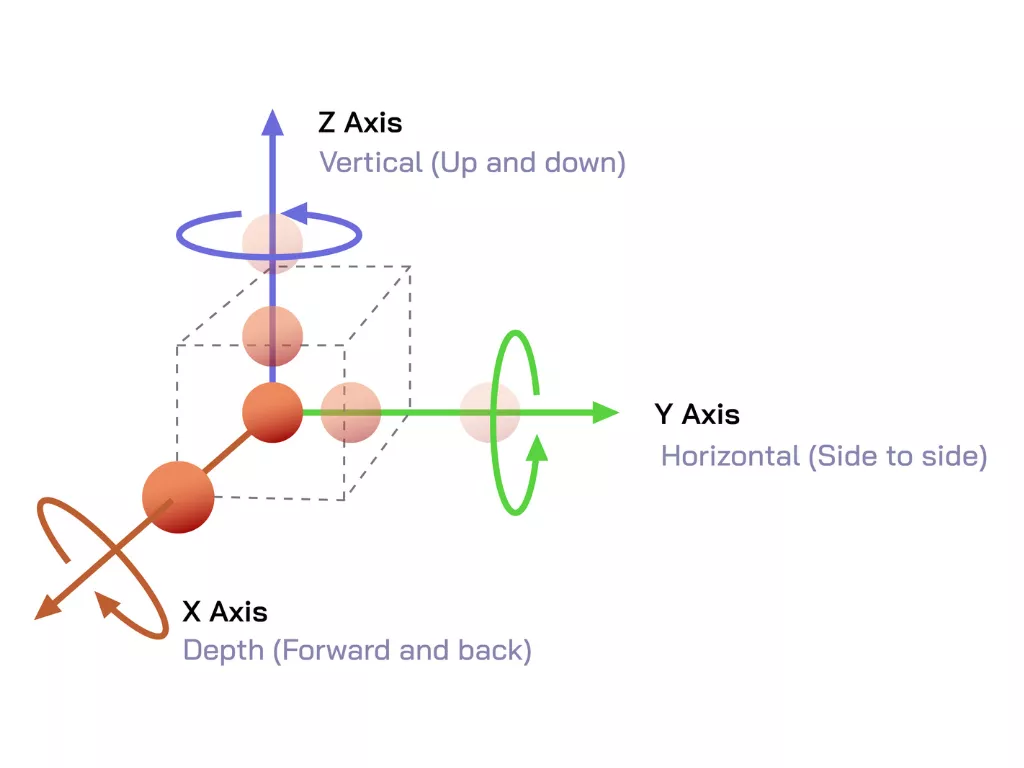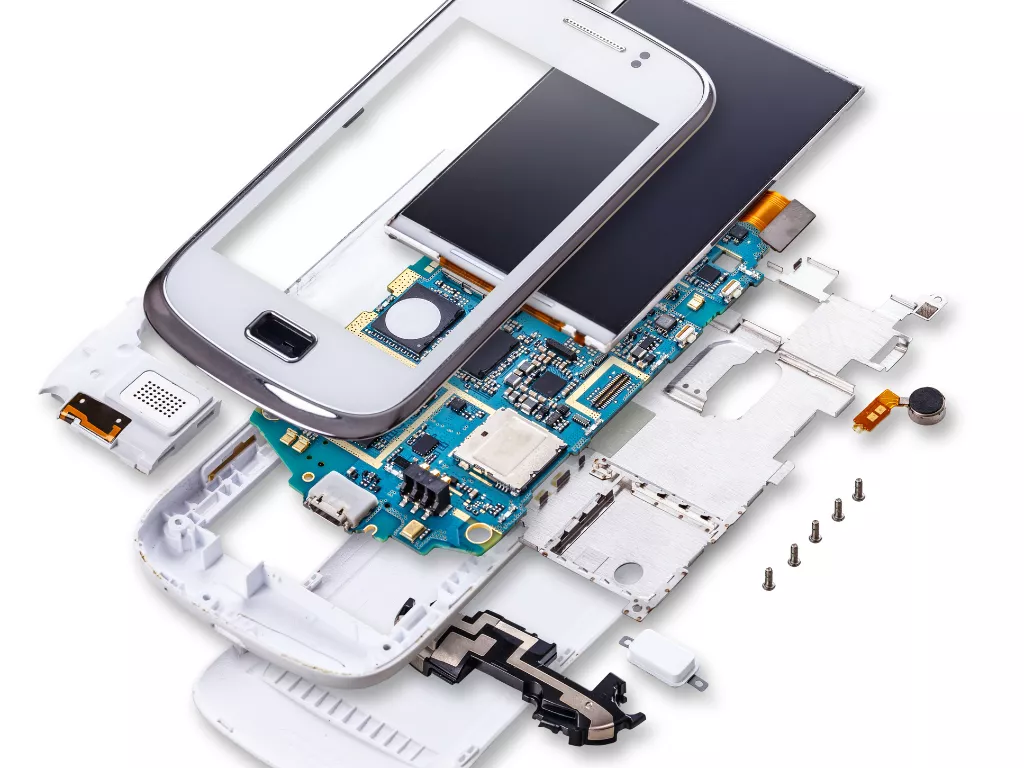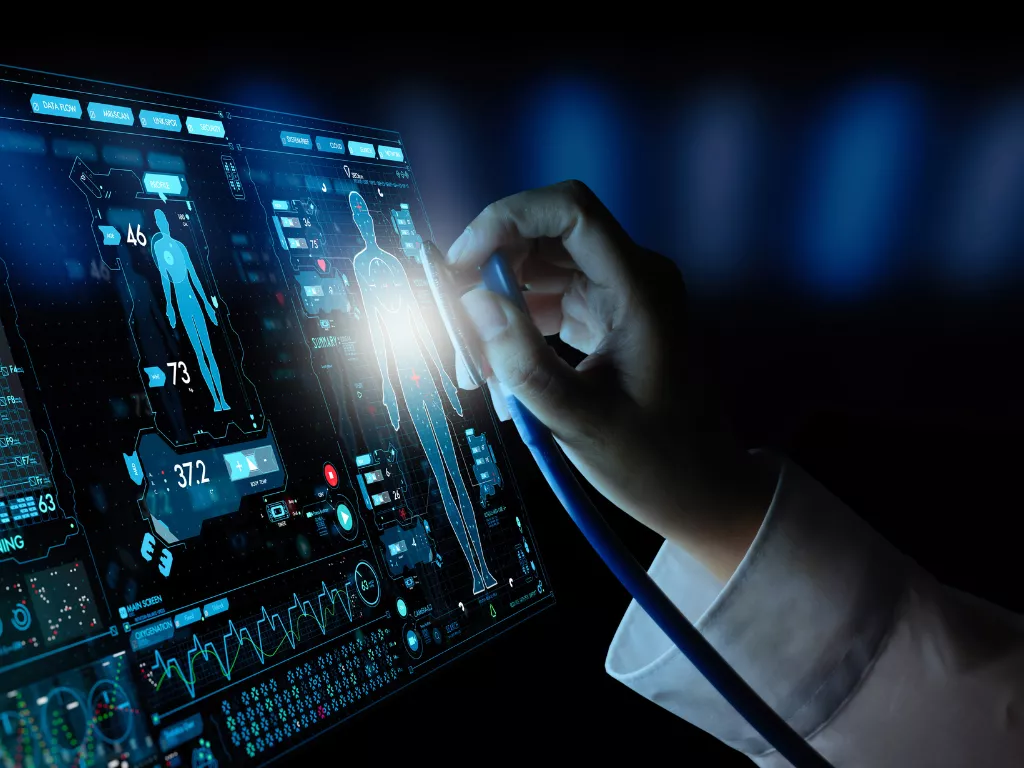How are Digital Applications transforming the Healthcare industry?
Digital transformation in the healthcare industry is speeding up, just like any other industry. The innovations and modern age technologies are helping doctors, hospitals, and caregivers digitize their practices.

Mobile and connected smart devices have become routine in healthcare and life sciences. This is one of the main reasons for the accelerated growth in medical software application development. The digitization of medical devices has led to the development of a wide range of healthcare apps that enable patients and healthcare professionals to use these devices in new and innovative ways. These apps assist healthcare providers in managing patient data, accessing, and maintaining health records, communicating with patients and other stakeholders for consultations, monitoring their health, and taking clinical decisions. Thus, these apps have the potential to improve healthcare outcomes and make healthcare more accessible and convenient for patients.
Driving factors for an increase in the number of digital apps:
- Focus on improving the overall health of the patients’ using smart devices.
- Increasing internet and smart devices market penetration.
- Consumer adoption of smart devices is at an all-time high.
- Growing awareness in maintaining physical health and lifestyle improvement.
- Government and private organizations as well as patients have become conscious of health applications’ benefits.
The combination of clinical data and advanced technology features helps in monitoring and improving health conditions.
Healthcare digital apps have positively transformed the healthcare industry in a variety of ways as follows:
- Increased access to medical services
- Improved communication between doctors, staff, and patients through video calls, instant messages, and emails
- Better processing and storage of medical data in compliance with regulatory standards
- Scheduling medical appointments seamlessly
- Reducing the risk of diagnostic errors, immediate access to reports in emergencies, empowering labs, hospitals, and clinics to take quick and informed decisions with real-time monitoring of patients.
- Monitoring patients from a distance, providing medical services to remote rural communities, and facilitating critical home-based care during emergencies.
- In pandemic-like situations, apps to check symptoms, and apps that act as vaccine passports helped to get control over pandemic like situations.
- For patients, healthcare apps are catalysts to engage with clinicians through virtual consultations, that can track their crucial health parameters and act on symptoms remotely.
- Healthcare apps also facilitate simple and faster bill payments. Patients can pay for medicines, consultations, and medical services bills directly through the apps.
- The apps benefit caregivers as well as patients by educating and training them.
Types of Healthcare Apps
Digital health apps cover a wide range of services and solutions that include managing and tracking online medical appointments to disease management over virtual meetings, accessing diagnoses, and as simple as a medication-tracking app. There are also Lifestyle healthcare apps that manage to track of daily calorie intake and burn count, exercises, sleep, and nutrition.
1. Lifestyle apps
Lifestyle apps contribute to managing healthy lifestyles among users. These apps are more in demand after the pandemic with the focus being on mental, physical, and emotional health.
-
Fitness, nutrition, and weight loss apps: These apps connect users with trainers to consult with them anytime anywhere to achieve their goals in fitness and weight loss journey. These apps track data related to the exercise routine, diet, rest, and sleep. The apps guide the users to maintain better lifestyles to have control over comorbidities that come along with obesity such as diabetes, heart issues, and blood pressure.
-
Meditation and yoga apps: Research claims that meditation and yoga have a positive impact on mental health. These apps are in demand as anyone without prior knowledge of meditation and yoga can connect with users and practice at home, in workplaces, gardens, and hotel rooms.
2. Medical apps
- Telemedicine applications: The growth of telemedicine software/applications accelerated during the pandemic due to restrictions on physical movement to avoid the spread of disease. COVID-19 symptoms were managed and cured by physicians with the use of telehealth apps. Telehealth apps facilitate better patient engagement offering the patient access to their medical records or prescription details and receiving enhanced diagnosis and better medication without stepping out of their house. And all this requires is just a basic internet connection hooked to a smart device.
- Remote patient monitoring apps: These apps collect real-time health data of patients and make it available for physicians to manage their clinical conditions. Access to vital parameters such as blood pressure, sugar levels, heart rate, and oxygen levels, can be virtually monitored to take any corrective action in case of any adverse turn the patient may suffer.
Remote patient monitoring and telemedicine apps have been a boon to geriatrics to avoid crowds and get treated comfortably at home.
Also, healthcare apps ensure patients get treatment on time. These apps collect and store patient health data which can be valuable in the early detection and diagnosis of health conditions in advance to make well-informed decisions. - Appointment management and Medication tracking apps
Health apps are prevalent in the market, these help patients take their medication on time, monitor their doses, and alert them to renew their prescriptions. These apps provide valuable support to geriatrics and critical home-based care patients.
At present, globally, over 400,000 mHealth apps are available in the app stores. The global mHealth market size was valued at USD 56.8 billion in 2022 and is expected to expand at a compound annual growth rate (CAGR) of 10.8% from 2023 to 2030. (Reference)
As the healthcare industry is leveraging cloud, AI, data analytics, augmented reality, virtual reality, blockchain, and modern technologies, healthcare apps promise to have a brighter future. Healthcare consumer and enterprise apps are improving the quality of patient care through better health tracking, accurate diagnosis, and improved treatments. These apps can help to improve the quality of life for both caregivers and patients by providing more efficient and effective care.
Even though new apps get added every day to the stores, apps that fail to follow compliance, and guidelines and underperform, can be removed from app stores. With benefits, come challenges! Security of patient data, regulatory compliance, and interoperability can be major challenges in developing healthcare apps.
But the benefits of healthcare apps exceed the challenges of developing these. Building innovative solutions beneficial to the community and adding features that enhance the efficiency of health apps is certainly in demand.
To stay ahead in the competition, and deliver value-based care, digitizing healthcare services is a prerequisite. The applications or healthcare software have brought about a digital revolution by putting the patient at the centre of healthcare! When patients’ needs change, medical organizations need to up their investment in healthcare apps to respond to these changes.
Decos has a team of experienced professionals to build custom healthcare software. Healthcare software development can be complex, and it's important to have a team that is knowledgeable about both the technical aspects of software development and the unique requirements and regulations of the healthcare industry. We understand about your software needs, know what your patients’ requirements and see how, and where we can assist!
If you have an innovative idea that can disrupt the healthcare industry, get in touch with Decos’ team.
This blog is written by Divya Ghole Content Marketer, at Decos. She is content marketing strategist specialized in creating content for marketing collaterals contributing to successful marketing campaigns.
Decos is a cutting-edge technology services partner ready to meet your software needs in the medical domain. If you have a question on one of our projects or would like advice on your project or a POC, just contact Devesh Agarwal. We’d love to get in touch with you!

Discover more

Exploring Degrees of Freedom: From Mechanics to Robotics

Design for Disassembly: A Path to Sustainable Product Lifecycles

